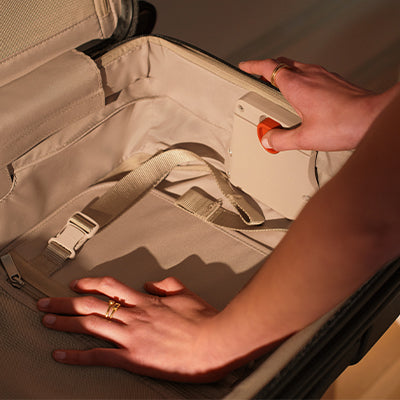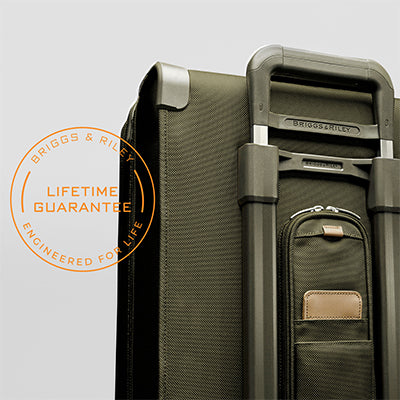Between transportation and lodging to entertainment and dining, vacation costs add up quickly.
With that in mind, you might be hesitant to add another line item, such as travel insurance. Here’s the thing: In a perfect world, everything would go off without a hitch, but in reality, more than 300,000 flights are canceled (6,000,000 delayed!), 22 million bags are mishandled, and there are countless medical emergencies, trip interruptions, and cancelations each year. So, is travel insurance worth it? Most likely.
Let’s take a closer look at what’s covered, what’s not, and how you can get the best plan to suit your needs.
What is Travel Insurance?
A travel protection plan guards you against specific financial risks and losses that can occur while traveling. These misfortunes can be trivial such as delayed luggage, to something more critical such as a trip cancellation or medical emergency. What’s great about travel insurance is that it protects you wherever you are in the entire world, which is vital if you become sick or injured overseas or lose your passport.
In most cases, travel insurance reimburses you for your covered financial losses after filing a claim, and the claim is approved. Filing a claim means you’re submitting proof of your loss to the insurance provider of your choice so that they can verify what happened and reimburse you for your covered losses.
What Does Travel Insurance Cover?
Travel insurance covers several travel-related risks, from flight cancellations to lost bags to major medical emergencies. The dollar amount of your coverage depends on the policy you purchased and where it’s from. Most travel insurance providers offer several different policies to choose from depending on your specific trip needs. Some people just opt to get flight insurance to cover their transportation costs. So how do you know which is best for you?
Start by getting a quote for your upcoming trip. You’ll need to provide information such as your age, trip costs, dates, location, and transportation plans. Next, you can compare the prices and benefits of each. Trip insurance typically covers:
- Trip Cancellation
- Trip Interruption
- Lost Luggage
- Flight Delay
- Medical Emergencies
- Medical Evacuation
- Travel Supplier Bankruptcy
- Passport Issues
- Car Rental Problems
One newer addition to travel insurance plans is COVID-19 coverage. Not all policyholders will cover your trip if you get sick before your trip and need to cancel or if you get sick while you’re on vacation and need medical attention. However, many companies are making exceptions for policies already in effect. Some of the best providers to look into that provide COVID coverage, ample medical coverage, and let you cancel for any reason available include:
- HTH WorldWide
- John Hancock Insurance Agency
- Seven Corners
- Trawick International
- USI Affinity Travel Insurance Services
- AIG Travel
- April International
What Is Not Covered by Travel Insurance?
Incidents not covered by your travel insurance vary by provider and policy. For example, not every company covers rental car damage or theft, or a travel-related accident. Other questionable risks include pre-existing conditions, trips that involve risky activities such as mountain climbing. With that said, this is why you must do your homework and compare policies and providers. It should go without saying, but most policies won’t cover you or your trip should you have an incident involving drugs, alcohol, acts of terrorism, or any illegal action.
If you want complete flexibility to cancel your trip, then you'll need to find a policy that allows you to purchase a Cancel For Any Reason (CFAR) add-on. As the name suggests, you’ll be able to cancel your trip for any reason. Generally, you'll get around 75% of your prepaid, non-refundable trip expenses back, though it all depends upon the policy you purchased.
When is Travel Insurance Necessary? Or Not?
When is traveler’s insurance good or not? If you can cancel all of your reservations without a penalty, then there’s no reason to purchase a policy. If you’re locked into your plans, then a policy is a good idea. However, even if your trip isn’t fully refundable, you may still want to purchase travel coverage for medical emergencies — especially if you’re traveling overseas. Most U.S.-based health insurance policies don’t cover illness or accidents overseas, which is where travel insurance comes in handy.
Keep in mind that if you're planning on traveling to a destination that could have weather-related issues (think hurricanes in the Caribbean), travel insurance may protect your noncancelable reservations providing you purchase the policy before the incident.
How to Buy Travel Insurance
If you’re booking through a travel agent or site, then it’s likely that you’ll be able to purchase a policy through them. This includes online booking websites like Orbitz, Travelocity, Expedia, etc. Otherwise, look to the list mentioned above of providers to compare policies that meet your needs. Additionally, flight insurance may be offered by your airline carrier. When working with an insurance provider, you can purchase insurance policies covering a single trip, multiple trips, or a full year. Some individual policies or options cover your entire family.
How Much Does it Cost?
There’s no one-size-fits-all travel insurance policy, so the cost is determined by the specifics of your trip. However, be prepared to spend anywhere between five and ten percent of your total trip cost on insurance. It’s a small price to pay to have the security of getting reimbursed thousands of dollars — substantially more if there’s a medical situation. Request a quote from multiple providers for the sake of comparison, or use an online consolidator tool such as SquareMouth or InsureMyTrip.com.
So, Is Travel Insurance Worth It?
We’ve established in this blog post that, in many cases, travel insurance is well worth it. However, don’t wait too long to purchase it. Ideally, buy it immediately after you’ve secured your travel arrangements. Why? Because the earlier you buy, the bigger the coverage window will be. Should you find a provider that covers pre-existing medical conditions, keep in mind that your policy must be purchased within 14 days of securing your trip with a deposit.
Always thoroughly read through your plan before you leave in case you need to make any adjustments before you take off. We’re living in uncertain times right now, so trip insurance could be the extra peace of mind you need.



















Leave a comment